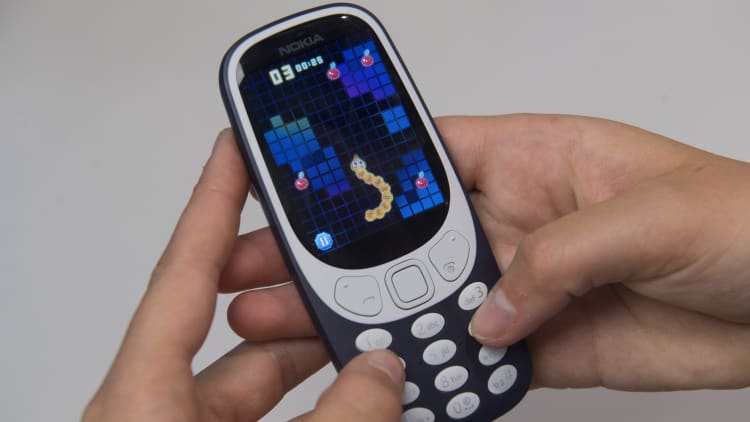HMD Global, the company that makes Nokia-branded smartphones, on Wednesday launched a new smartphone that can be repaired by users when parts get damaged.
The purple device can be repaired by customers using parts provided by iFixit, the repair advocacy organization. It retails at £199 ($252) for a version with 128GB of internal storage.
It is available in the U.K., starting Wednesday. HMD Global didn't provide details on U.S. availability.
The launch furthers a push by HMD Global into reparability as it looks to tempt people to buy new phones.
The G42 5G is a more premium-feeling upgrade on the company's repairable G22 phone, which was unveiled at the Mobile World Congress trade show in Barcelona earlier this year.
The phone comes with a 50-megapixel main camera, a 6.56-inch screen, and three-day battery life. Users will be given three years of monthly security updates and two years of operating system upgrades.
Users will have to pay for respective parts they need replaced. For the charging port, you'll have to pay £24.95. For the battery, it's £29.95. As for the rear cover, it's £29.95.
'Right to repair'
Smartphone companies are increasingly working to make phones last longer amid pressure from regulators to make electronics devices more sustainable.
WATCH: 'Sea of sameness': Are smartphone makers out of ideas?

Lawmakers in the European Parliament, for example, are calling for legislation that would force manufacturers to give users the "right to repair." This refers to a movement among consumer rights campaigners to make it easier for consumers to repair their gadgets.
The European Commission's Green New Deal seeks to make the bloc a circular economy by 2050, making it so that almost all physical goods can be repurposed, repaired, reused or recycled to minimize waste.
Repairing phones, in particular, has gotten more complex due to how tightly the battery and other components are sealed by glue.
Apple, which had long been reluctant to changes to its repair policies, decided in November 2021 to launch a self-service repair program that lets customers buy parts to fix their own devices.
In December, the iPhone maker expanded this program to eight European countries, including Belgium, France, Germany, Italy, Poland, Spain, Sweden, and the U.K.


